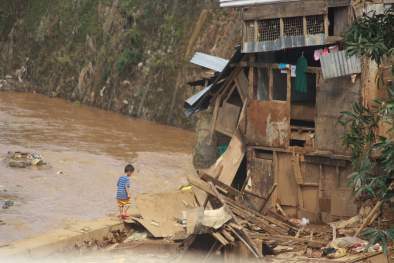The “Dialogue on Adaptation to Climate Change for Land and Water Management” was initiated by the Danish Government, acting through the Ministry of Foreign Affairs/Danida, in November 2008 with the aim to raise the importance of adaptation for land and water management in the UNFCCC negotiations leading to COP 15 in Copenhagen and beyond.
The rationale for initiating the Dialogue was that the impacts of climate change are felt first and foremost through the land and water system, in the form of hydrological changes, increased variability and sea level rise. The “hot spots” for these impacts are mostly in the developing world (Africa South of Sahara, the mega deltas of Asia, the small island states etc.). The poorest and most marginalized groups in these countries are the most vulnerable, and also those with least capacity to adapt. Hence the Dialogue was designed to focus on the poorest developing countries.
In planning and executing the Dialogue Danida sought the help and support of a few close partners who would assist in the preparations of meetings, conferences and workshops, be active at these events and help framing the outcomes. One of the key partners working with Danida has been the Global Water Partnership (GWP). Danida has supported and worked with the GWP since its inception in 1995, seeking through GWP support for Integrated Water Resources Management (IWRM), and the development and implementation of this concept through a multi-stakeholder approach. It is the firm belief of Danida and its key partners in the Dialogue that IWRM provides the appropriate framework for adaptation to climate change for land and water management. Consequently GWP has been considered a key partner in working with the Dialogue, bringing unique competence and experience of IWRM and its application for adaptation to the table.
The Dialogue was kicked off by the preparation of a Concept Paper to serve as background for the initial conferences and workshops. This Concept paper was strongly inspired by the Policy Brief on water and climate prepared by the GWP Technical Committee (TEC), and later in the process emerging drafts of the Perspective Paper “Better water resources management – greater resilience today, more effective adaptation tomorrow”. Key GWP experts provided helpful contributions to the writing process.
The Dialogue itself was executed through an initial conference in Copenhagen (November 2008), regional workshops in Hanoi (January 200) and Bamako (February 2009), the World Water Forum in Istanbul (March 2009) to the final conference in Nairobi (April 2009). GWP representatives from GWP Headquarters (GWPO in Stockholm), GWP TEC and several Asian and African regional and country partnerships participated actively in all these events, bringing the multi-stakeholder IWRM perspective to the table in a most convincing manner, and hence leaving a strong fingerprint on the final Nairobi Statement and the 5 Guiding Principles resulting from that.
But fortunately GWP’s contribution does not end with the rhetoric. GWP engages actively in promoting these important Guiding Principles in various meetings and dialogues contributing to the UNFCCC negotiations. A strong voice for “adaptation for land and water management”, and the plight of the poorest countries in facing these challenges, is required to raise this important issue on the international agenda and influencing the final texts at COP 15. In addition, many of the parallel processes and dialogues associated with the COP 15 process, until and including the event itself, are important to build broad understanding and alliances to take the messages forward. In this respect GWP has a very important role to play, and should be present in Copenhagen to add quality to the debate.
Finally, the ultimate goal of the Dialogue is to make a difference on the ground, translating the “Nairobi Guiding Principles” into an action agenda for the benefit of the poorest countries. In so doing Danida and partners are building alliances of actors to assist in the implementation of adaptation for land and water management on the ground, and GWP is key in making this a success.
In conclusion, the “Dialogue on Adaptation to Climate Change for Land and Water Management”, assisted by GWP as a key partner, will hopefully contribute both politically in the UNFCCC/COP 15 negotiations, and operationally on the ground after Copenhagen, to help poor people adapt to the serious impact of climate change confronting them already now.

